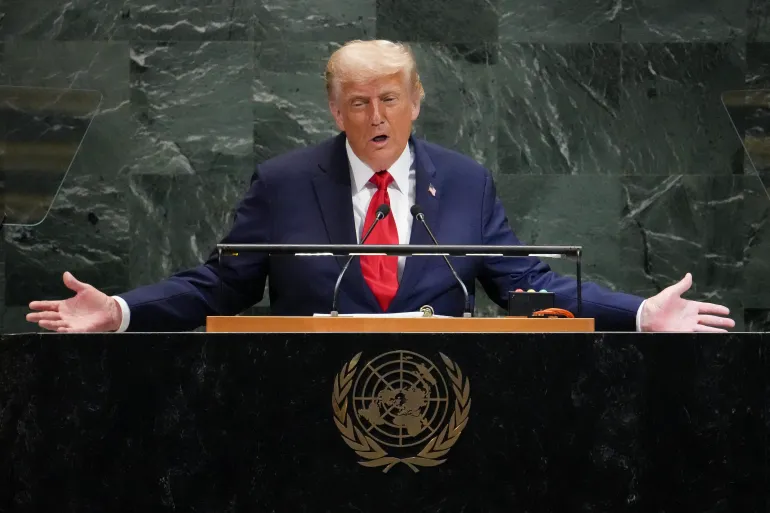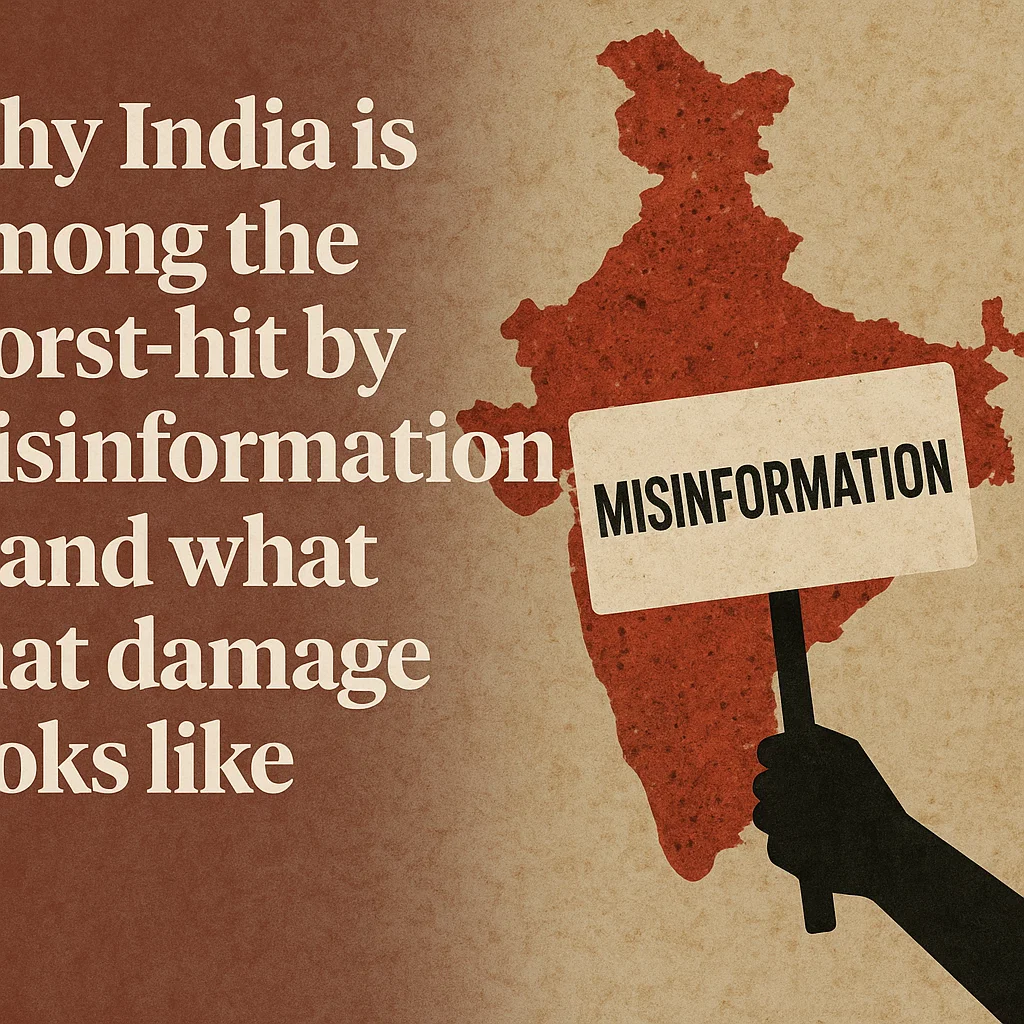Introduction
Donald Trump’s 2025 address to the United Nations General Assembly was not a diplomatic speech. It was a political performance — part campaign rally, part grievance monologue, part nationalist manifesto. Instead of reinforcing multilateral cooperation or offering constructive leadership, the U.S. president dismissed climate change as a “con job,” accused migrant-receiving countries of “destroying themselves,” and boasted that he had “ended seven wars in seven months.”
Adding insult to injury, Trump veered into personal attacks — including mocking London’s mayor Sadiq Khan, calling him “a failed man running a failed city.” The remark was both irrelevant to the UN stage and emblematic of Trump’s disregard for diplomatic norms. For many in the room, this was not only an American president speaking, but a statesman weaponizing the UN as a stage for personal vendettas.
This was more than political theatre. It was a direct blow to America’s moral standing — leaving allies alienated, adversaries emboldened, and raising urgent questions about whether the U.S. can still be trusted to lead in a fractured world.
A Speech to the Base, Not the World
Trump’s language echoed the same themes that define his domestic “MAGA” narrative: fortress borders, disdain for international climate accords, and hostility to institutions that limit sovereign power. The UN speech sounded less like a multilateral platform and more like a campaign rally broadcast to global audiences.
For his domestic supporters, this was a triumph — proof that Trump will “speak truth” to elites. But for allies, the message was stark: U.S. diplomacy now flows directly from U.S. electoral politics, not global consensus.
A Gift to Adversaries
For Russia and China, Trump’s speech was propaganda gold. Moscow seized on his ridicule of European immigration policies as proof that the West is divided. Beijing, meanwhile, pointed to his dismissal of climate science as evidence that the U.S. is unfit to lead on global challenges.
When the U.S. undermines allies and dismisses universal issues, adversaries don’t need to invent anti-American narratives — Washington supplies them. Trump’s rhetoric gives geopolitical rivals an opening to present themselves as more stable, more predictable partners, even if their own records are deeply flawed.
Fact, Fiction, and Credibility Gaps
Trump’s boast that he had “ended seven unendable wars” was perhaps the most striking example of his disconnect with reality. Conflicts in Ukraine, Gaza, Sudan, Yemen, the Sahel, and elsewhere remain unresolved. U.S. involvement may have shifted in some theaters, but wars are ongoing.
Diplomats openly questioned: if the U.S. president makes demonstrably false claims on the UN stage, why should any future assurances — on security, peacekeeping, or trade — be taken seriously? Credibility, once lost, is difficult to restore.
The UN Stage Diminished
Trump didn’t just criticize the UN — he mocked it. By framing technical glitches (like his failed teleprompter and the stuck escalator) as deliberate sabotage, he implied the institution itself was hostile to him. This trivialized the forum, reducing the world’s most important diplomatic stage into a backdrop for conspiracy theories.
For smaller nations, this was disheartening. Many rely on the UN as their only platform for visibility and equality in global affairs. When the U.S. dismisses the institution, it signals that international law and multilateral cooperation are optional, not binding. That message destabilizes the very foundation of post–World War II order.
Alienating Allies and the West
Trump’s broadside against Europe — warning that its immigration policies were “destroying nations” — played well to his base but landed poorly in Brussels, Berlin, and Paris. European diplomats privately expressed frustration that the U.S. no longer even pretends to lead a shared democratic project.
The timing is particularly damaging. With European states recognizing Palestinian statehood and diverging from Washington on Israel, Trump’s speech deepens the perception of U.S.–European estrangement. NATO unity, already strained, faces further stress.
European diplomats described Trump’s address as “humiliating.” For leaders in London, Paris, Berlin, and Madrid, it confirmed that Washington under Trump is not just transactional but openly hostile. His unnecessary attack on Sadiq Khan sent shockwaves across the UK, reinforcing the impression that Trump is willing to publicly ridicule democratic allies while simultaneously embracing authoritarian leaders who flatter him.
In Europe, this will accelerate debates over strategic autonomy — the idea that the EU must reduce dependence on Washington in defense, trade, and foreign policy. For NATO, the implications are grave: unity relies not only on military commitments but also on political solidarity. Trump has eroded both.
Multilateralism Under Siege
By calling climate change a “hoax” and dismissing the UN as ineffective, Trump undermined the very institutions the U.S. helped build after World War II. In doing so, he validated the narrative pushed by China, Russia, and other challengers: that global governance is dead, and only raw power matters.
If Washington withdraws moral and financial support, the UN will weaken further — opening space for rival coalitions (BRICS+, regional blocs, or even ad-hoc groupings) to fill the gap.
The Erosion of U.S. Moral Leadership
For decades, the United States positioned itself as a defender of democracy, human rights, and international law. Trump’s speech flipped that script. By mocking climate action, ridiculing allies, and excusing authoritarian behavior, he aligned America not with principles, but with power politics.
This erosion of moral leadership has two effects:
- Allies doubt U.S. reliability. If America is willing to humiliate close partners, can they count on Washington in times of crisis?
- Global South skepticism deepens. Many already accuse the U.S. of hypocrisy. Trump’s open contempt for universal norms confirms those suspicions.
Strategic Fallout: What Comes Next
The fallout from Trump’s UN speech will reverberate long after the applause (and awkward silences) faded:
- Europe will double down on independent foreign policy. Expect more divergence on Israel-Palestine, defense procurement, and climate action.
- Arab and Muslim states will interpret Trump’s rhetoric as a blank check for Israel, accelerating their pivot toward China and Russia.
- The Global South will leverage U.S. credibility gaps to extract concessions or shift alliances.
- Adversaries like Russia, China, and Iran will exploit the fractures, presenting themselves as more respectful alternatives.
Most critically, the speech will fuel a global debate: is America still a leader of the rules-based order, or merely another great power pursuing narrow self-interest?
Conclusion: The UNGA Speech’s Legacy
Trump’s UN address will be remembered less for policy detail than for its symbolism: the moment the U.S. abandoned its role as steward of global norms and rebranded itself as a sovereign actor unconstrained by collective responsibility.
For some Americans, that is liberation. For much of the world, it is destabilization. The irony is that Trump may succeed in reshaping the U.S. role in global affairs — not by restoring American strength, but by hastening the end of U.S. moral leadership.








